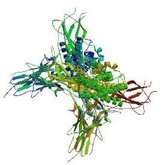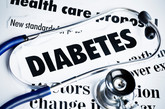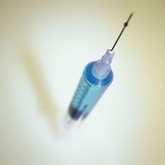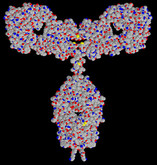Biosimilars
British Columbia expands biosimilar switching programme to include insulin
The Canadian province of British Columbia has expanded its biosimilar switching programme to include rapid-acting insulin products. Patients taking Humalog (insulin lispro) and NovoRapid (insulin aspart) will have six months to switch to a biosimilar version.
Canada approves filgrastim biosimilar Nypozi
Canada’s drug regulator, Health Canada, has approved the filgrastim biosimilar Nypozi (TX01). The drug can be used to treat neutropenia (a lack of white blood cells) in cancer patients.
Regulations of the registration of biosimilars in Latin America
In the review and comparison of biosimilar products performed in the nine Latin American countries, particularities were found regarding their definition, as some regulations do not include the term, affecting the biosimilarity exercise and clinical and non-clinical information. In addition, differences were also found in aspects of their use, such as extrapolation of indications and automatic substitution or interchangeability. As for its labelling, further research by health authorities is required [1].
New Zealand announces funding for adalimumab biosimilar
New Zealand has announced that, in order to widen access to adalimumab, it will now fund the adalimumab biosimilar Amgevita.
Viatris/Biocon launch two versions of Semglee to accommodate rebates
Viatris (formerly Mylan) and Biocon have launched two versions of their interchangeable biosimilar Semglee (insulin glargine) on the US market, at different price points, in order to accommodate rebates and increase market share.
Biosimilar uptake and the education of healthcare provider
Affordability and access. Two simple words that nevertheless convey the complex burdens facing many healthcare systems around the world. And within the healthcare realm, there is likely no aspect that embodies issues related to affordability and access more than prescription medicines.
China approves three bevacizumab copy biologicals
China’s National Medical Products Administration (NMPA), formerly the China Food and Drug Administration (CFDA) has approved three bevacizumab.
Biosimilar reimbursement rules cost Medicare over US$1.5 billion
Current Medicare Part B biosimilar reimbursement rules prevented healthcare savings of over US$1.5 billion between 2015 and 2019, revealed a study published in JAMA Network Open [1].
Interchangeable insulin glargine biosimilars available through Prime Therapeutics and Walgreens
In November 2021, it was announced that, in the US, insulin glargine biosimilars co-developed by Viatris and Biocon Biologics will be preferentially offered through Prime Therapeutics pharmacy benefit management organization and will be available to members of Walgreens Prescription Savings Club.
Adalimumab biosimilar launched in Japan
Japan-based Mochida Pharmaceutical (Mochida) announced on 25 November 2021 that its adalimumab biosimilar had been launched in Japan following the listing of the drug on the National Health Insurance (NHI).













